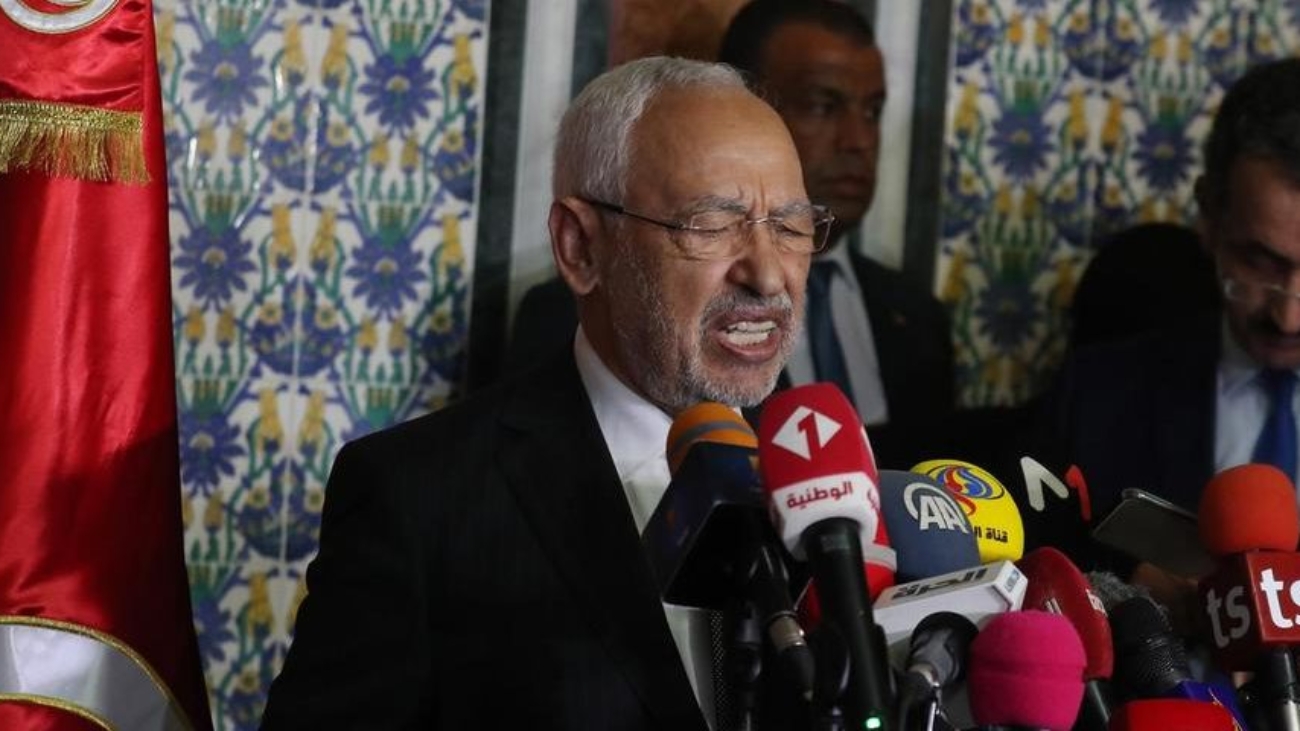Tunisia’s parliamentary speaker survives confidence vote
This piece was originally published on the thenational website https://www.thenational.ae/
Tunisia’s parliamentary speaker Rached Ghannouchi narrowly survived a confidence vote after being accused of having exceeded the authority of his position.
The closed vote showed 97 members in favour of the speaker’s removal, 12 votes shy of the 109 needed.
The motion, which had been championed by the secular Free Destourian Party (PDL), accused Mr Ghannouchi, the Ennahda party co-founder and self-styled Muslim democrat, of overreaching the limits of his office in his contact with foreign powers and of violating the neutrality required of his position as parliament speaker by favouring his own party’s interests.
The PDL, which positions itself as the continuation bloc of former autocrat Zine El Abidine Ben Ali, were subsequently joined by four other parliamentary blocs, the Democratic Group (Democratic Movement and Echaab Movement), the National Reform group, Tahya Tounes and Al Watania,
Despite narrowly winning the vote, with the defection of many of its former parliamentary backers Ennahda is now expected to turn to the Islamist Karama coalition and Ennahda’s previously bitter electoral rivals, Qalb Tounes (Heart of Tunisia), as it seeks to shore up its support in parliament.
Under Tunisia’s constitution, the conduct of foreign policy is the sole preserve of the president. However, Mr Ghannouchi’s visit to Turkey in January, where he met with Turkish President Recep Tayyip Erdogan, led some parliamentarians to question his role. In addition, his congratulatory message in May to the leader of the UN-recognised government in Tripoli, Fayez Al Sarraj, following a battlefield victory in a conflict where Tunisia remains neutral, raised doubts about Mr Ghannouchi’s position.
Thursday’s vote was the latest instalment in the long-running parliamentary feud between Ennahda and the PDL. The dispute has led to extraordinary scenes in parliament, including a lengthy sit-in by PDL deputies and the literal confiscation of Mr Ghannouchi’s chair by opposition MPs.
The vote comes barely two weeks after a previous tally forced Elyes Fakhfakh to resign as prime minister over allegations of corruption. His designated successor, interior minister Hichem Mechichi, will likely have been watching the latest vote carefully as he weighs Ennahda’s place in any future government.
However, Mr Ghannouchi’s survival of the no-confidence motion will at least give policymakers within Ennahda some respite. “I think he is safe for now – it will be hard to justify doing anything like this again anytime soon,” Sarah Yerkes, a senior fellow at the Carnegie Middle East Programme, told The National. “But, such a narrow vote could give Mechichi reason not to include Ennahda in his government,” she said.
Given the internecine warfare that has dominated parliamentary proceedings throughout this session, it seems likely the parties will try to reach some for of compromise.
“Irrespective of the political positions, all parties have an interest in agreeing on a formula of sorts that can allow some stability,” said Elie Abouaoun, the Tunis-based director of the Middle East and North Africa programme of the United States Institute of Peace.
“This is even more important given the dire economic situation and the need for both the executive and legislative powers to commit to a serious and visionary reform plan,” he said.
Comparing the current crisis to that of 2013, when the country teetered on the brink of a second revolution following the assassination of two key opposition MPs, Dr Abouaoun said “a national dialogue of sorts” was needed.
“However, this time it has to be tied to the grass roots level so that the expectations of ordinary citizens are taken into account,” he said

